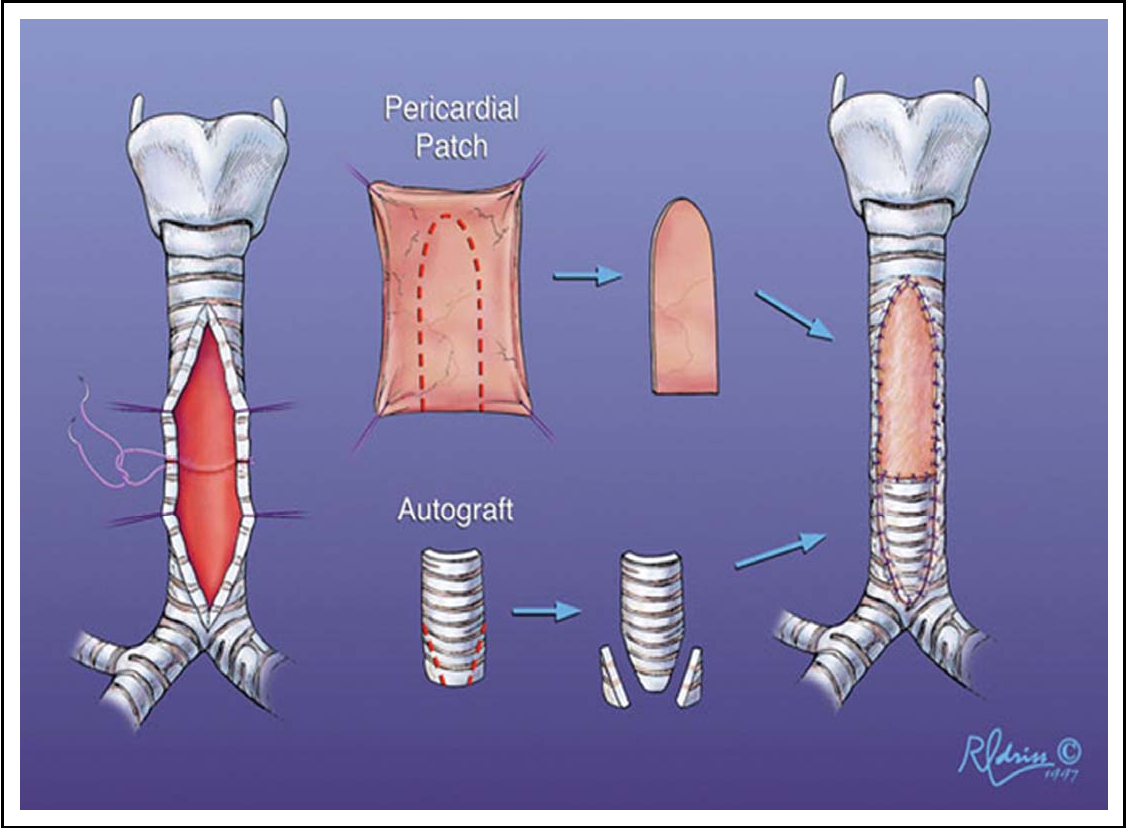
Tracheal surgery is a medical procedure performed on the trachea, which is the windpipe that connects the throat to the lungs. Here's some information about tracheal surgery in simple words:
Tracheal surgery is done for various reasons:
Tracheal Stenosis: Tracheal stenosis is a condition where the trachea becomes narrowed, making it difficult for air to pass through. Surgery is performed to widen the trachea and improve breathing.
Tracheal Tumors: When tumors or abnormal growths develop in the trachea, surgery may be necessary to remove them and prevent obstruction of the airway.
Tracheoesophageal Fistula: A tracheoesophageal fistula is an abnormal connection between the trachea and the esophagus. Surgery is performed to close the fistula and separate the two structures.
Tracheal Resection and Reconstruction: In cases of severe tracheal stenosis or tumor involvement, a portion of the trachea may need to be removed and reconstructed to widen the airway and restore proper breathing.
Tracheostomy: In emergencies or cases of severe airway obstruction, a tracheostomy may be performed. This involves creating a surgical opening in the front of the neck, and a tube is inserted directly into the trachea to provide an alternative airway.
The recovery time after tracheal surgery depends on the type of surgery performed and the individual's overall health. Patients typically stay in the
hospital for a few days for monitoring and post-operative care.
As with any surgical procedure, tracheal surgery carries certain risks, such as bleeding, infection, complications related to anesthesia, or damage to nearby structures. However, these risks are generally minimized when the surgery is performed by experienced surgeons in appropriate medical settings.
Tracheal surgery involves procedures performed on the trachea to treat conditions like tracheal stenosis, tracheal tumors, or tracheoesophageal fistulas. These surgeries are essential for managing airway-related issues and improving breathing and quality of life for affected individuals. If someone requires tracheal surgery, it's crucial to consult with a qualified healthcare professional to understand the specific procedure, its benefits, and potential risks.